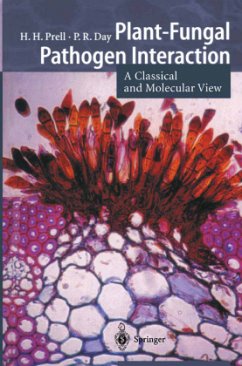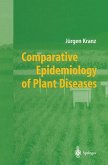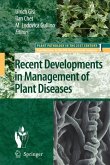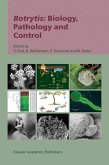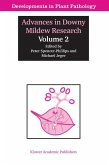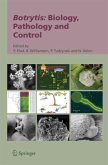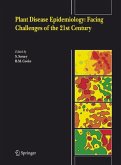Research on the interactions of plants and phytopathogenic fungi has become one of the most interesting and rapidly moving fields in the plant sciences, the findings of which have contributed tremendously to the development of new strategies of plant protection. This book offers insight into the state of present knowledge. Special emphasis is placed on recognition phenomena between plants and fungi, parasitization strategies employed by the phytopathogenic fungi, the action of phytotoxins, the compatibility of pathogens with host plants and the basic resistance of non-host plants as well as cultivar-specific resistance of host plants. Special attention is paid to the gene-for-gene hypothesis for the determination of race-specific resistance, its molecular models and to the nature of race non-specific resistance as well as the population dynamics of plants and the evolution of their basic resistance.
From the reviews of the first edition:
"Given the complexity of the interaction between fungi, bacteria, viruses and their plant hosts, this is a surprisingly short book. ... The book's layout and index ensure that the reader can go quickly to areas of interest, where there are concise accounts of the concepts underpinning many aspects of current research topics. ... for the general practitioner in plant protection and plant breeding, and for students the book provides a firm foundation for the concepts underlying current research on this topic." (Derek W. Hollomon, Mycological Research, Vol. 105 (9), 2001)
"The scope of the book is very broad, covering all the major concepts in fungal-plant pathogenic interactions. ... each chapter or section concludes with a list of relevant reviews and a few papers, making this book an invaluable starting point from which to familiarize yourself with new areas. ... Anyone studying plant-fungal pathogen interactionsat undergraduate or post-graduate level should have access to this book, and it will be a valuable reference for researchers at more advanced levels." (Adrian C. Newton, The Mycologist, Vol. 15 (4), 2001)
"This book is a revised and updated version of a German book by Hermann H. Prell ... . The book provides a really excellent summary of most aspects of plant pathology. ... Since this book contains a broad spectrum of information it can be recommended for a readership from graduate students of biology and agriculture to teachers and scientists interested in fungal plant pathology. It is easy to read, a very valuable source of information and literature ... ." (Axel Mithöfer, Journal of Plant Physiology, Vol. 159, 2002)
"This book is a distillation of the essence of physiological and molecular plant pathology in just over 200 pages! ... The book is lucidly and logically written and presented ... . this book is an excellent synopsis of current thinking in physiological andmolecular plant pathology, set against a comprehensive historical background. It provides a superb course book for advanced students and a unique introduction to the literature for research scientists new to plant pathology. I recommend it very strongly indeed." (D. S. Ingram, Annals of Botany, Vol. 89 (1), 2002)
"Given the complexity of the interaction between fungi, bacteria, viruses and their plant hosts, this is a surprisingly short book. ... The book's layout and index ensure that the reader can go quickly to areas of interest, where there are concise accounts of the concepts underpinning many aspects of current research topics. ... for the general practitioner in plant protection and plant breeding, and for students the book provides a firm foundation for the concepts underlying current research on this topic." (Derek W. Hollomon, Mycological Research, Vol. 105 (9), 2001)
"The scope of the book is very broad, covering all the major concepts in fungal-plant pathogenic interactions. ... each chapter or section concludes with a list of relevant reviews and a few papers, making this book an invaluable starting point from which to familiarize yourself with new areas. ... Anyone studying plant-fungal pathogen interactionsat undergraduate or post-graduate level should have access to this book, and it will be a valuable reference for researchers at more advanced levels." (Adrian C. Newton, The Mycologist, Vol. 15 (4), 2001)
"This book is a revised and updated version of a German book by Hermann H. Prell ... . The book provides a really excellent summary of most aspects of plant pathology. ... Since this book contains a broad spectrum of information it can be recommended for a readership from graduate students of biology and agriculture to teachers and scientists interested in fungal plant pathology. It is easy to read, a very valuable source of information and literature ... ." (Axel Mithöfer, Journal of Plant Physiology, Vol. 159, 2002)
"This book is a distillation of the essence of physiological and molecular plant pathology in just over 200 pages! ... The book is lucidly and logically written and presented ... . this book is an excellent synopsis of current thinking in physiological andmolecular plant pathology, set against a comprehensive historical background. It provides a superb course book for advanced students and a unique introduction to the literature for research scientists new to plant pathology. I recommend it very strongly indeed." (D. S. Ingram, Annals of Botany, Vol. 89 (1), 2002)

